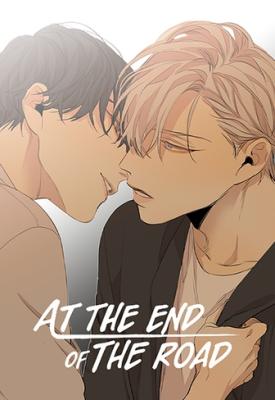This review is mainly for the benefit of readers who may get the wrong idea about the tone and themes of this manga from RiddleChloe and Anime11#'s comments. Anime11# makes a valid point about distinguishing fantasy from reality, but I think it's equally important to point out that RiddleChloe is wrong to imply that the dark subject matter amounts to advocacy or glorification of the dysfunction depicted.
The story is basically about two lonely, abused boys whose bond transcends death. The protagonist is admirable despite, not because of, his aggressive defense tactics and limited education. His dream is to go to school, but the plot recognizes that years of neglect, isolation, and domestic abuse are not so easily overcome at the first opportunity. His subpar academic standing is the subject of lighthearted ridicule, but his struggle realistically highlights who he is: a hardened kid for whom angst is a luxury and pragmatism is essential. It's acknowledged that he is a quick learner who is accustomed to hard work and both mentally and physically strong.
When struck by a truck while crossing the street, he is seemingly offered a second chance at life in the shoes of an academically gifted but physically weaker boy his age who has suffered his own share of hardships as a suicidal rape victim. The rape itself is a fleeting trauma, not scintillating fodder for readers with rape fetishes, and people wanting explicit content over character development should look elsewhere. The rapists, bullies, and child abusers are depicted as the victimizers they are even if that depiction is not as black and white as RiddleChloe may prefer. The fact that the two main characters must find inner strength and each other to survive is the central theme and tragedy of the story, so I have no idea how self-respect is supposedly being belittled. This is not the sort of yaoi that condones the ugly world its characters inhabit. Instead, it gives us flawed people whose struggle to survive is admirable and reason enough to champion their happiness.
I was baffled at RiddleChloe's interpretation, which seemed to equate the absence of some righteous authority apportioning justice with the absence of morals. Although good entertainment does not require an absolute or relative sense of morality, this manhua is hardly flaunting humanity's worst tendencies to shallowly exploit taboo stimuli. Morals abound if the reader is willing to recognize them.
Update in response to mikako17, who makes some excellent points:
The main lead's comments about being bored reflect his ability to intuitively sense the protagonist's absence and his indifference towards unrelated people who exhibit no will to live. He’s a screwed-up guy, and his callous attitude isn’t supposed to be endearing. I think we are meant to sympathize with his character and understand how he became so cold without condoning that coldness. More important, his attitude has no bearing on what transpired. He is not a perpetrator, but he knows the twins well enough to dislike one of them, at least, for commenting on his family.
The author gives us reason to believe there is a body swap, so both characters are given a second chance. The main lead sees the protagonist’s body after the accident, at which point the weaker character wakes up before passively embracing death. The main lead’s criticism of that fatalistic choice may reflect the author’s feelings, but we learn in later chapters that much of the ridicule leveled at the weaker character is a myopic reaction to a scandalous video that may have led viewers to believe he was more complicit in what happened than he was. (To be honest, I’m not sure why the tape can’t be used against his oppressors or why it’s up to the students to bear everything alone, but I don’t think anything in the story suggests this is acceptable.) Regardless, his strength and selflessness were apparent before the rape. He was a popular student esteemed for his excellent academic record before his jealous twin manipulated him into confronting the story’s dangerous antagonist in an ill-fated attempt at heroism. The uniquely humiliating nature of a gang rape caught on tape ruined him, which is why the protagonist accused the antagonist of murder. It was the pivotal moment that destroyed his will to live. In that sense, I think the rape was depicted as a significant, life-altering event.





